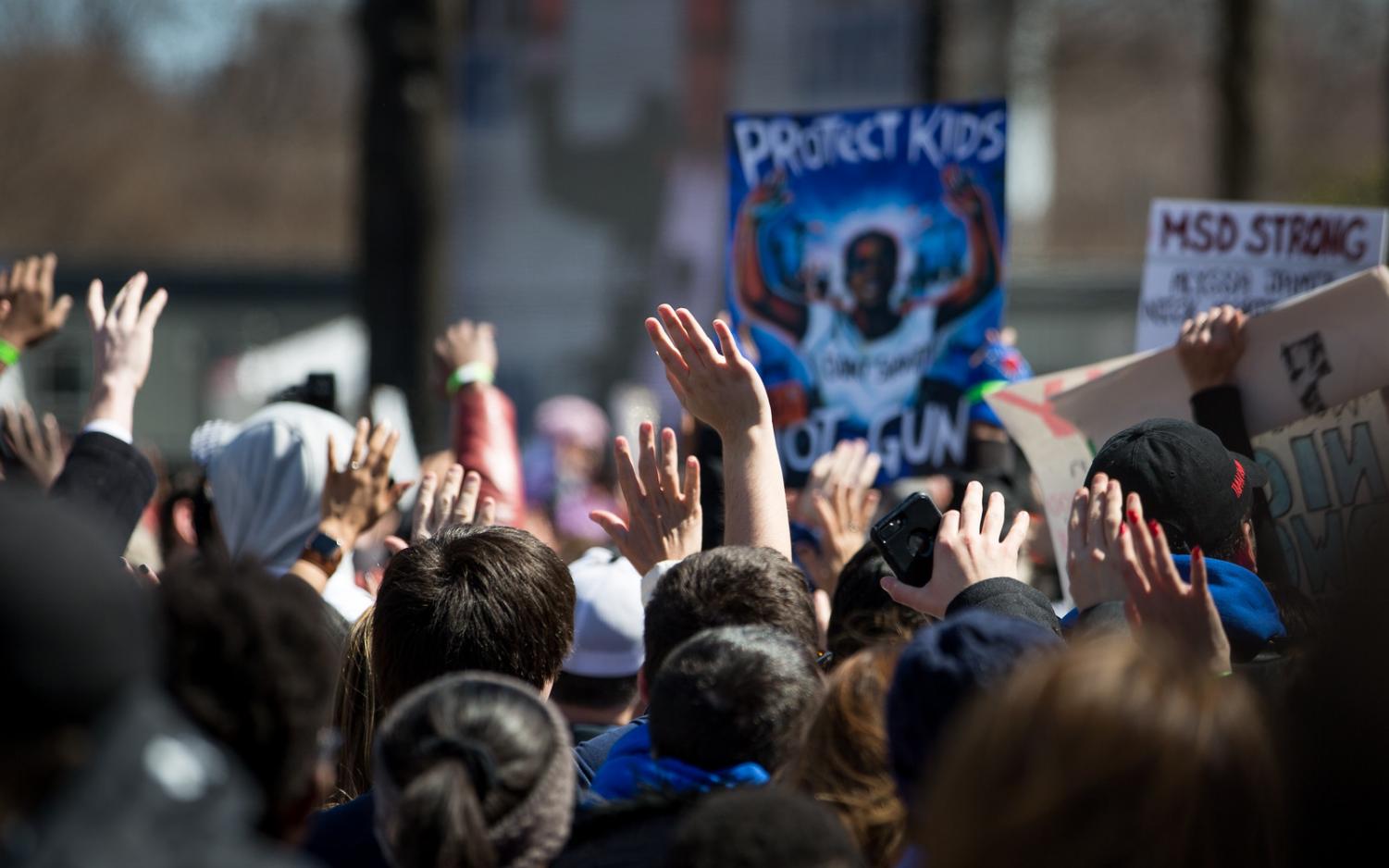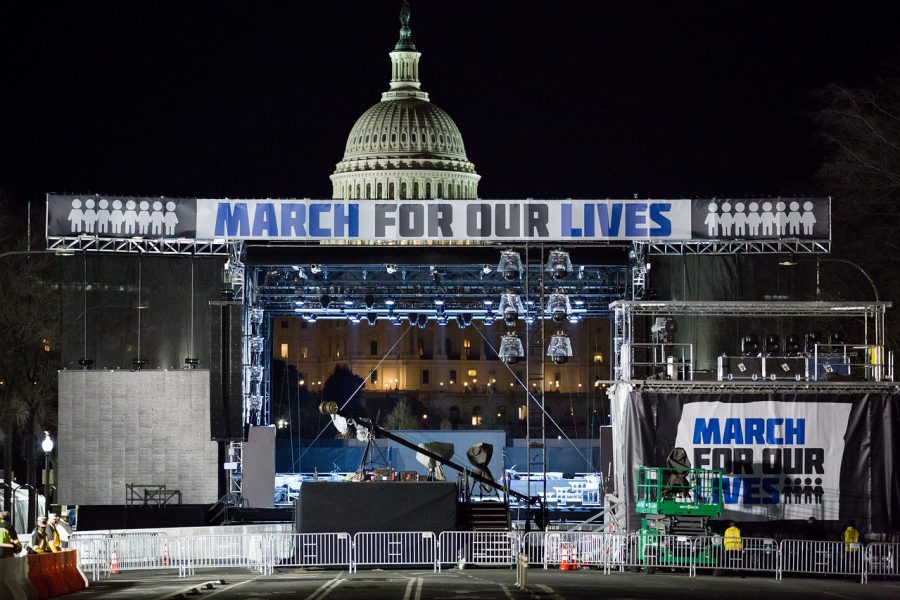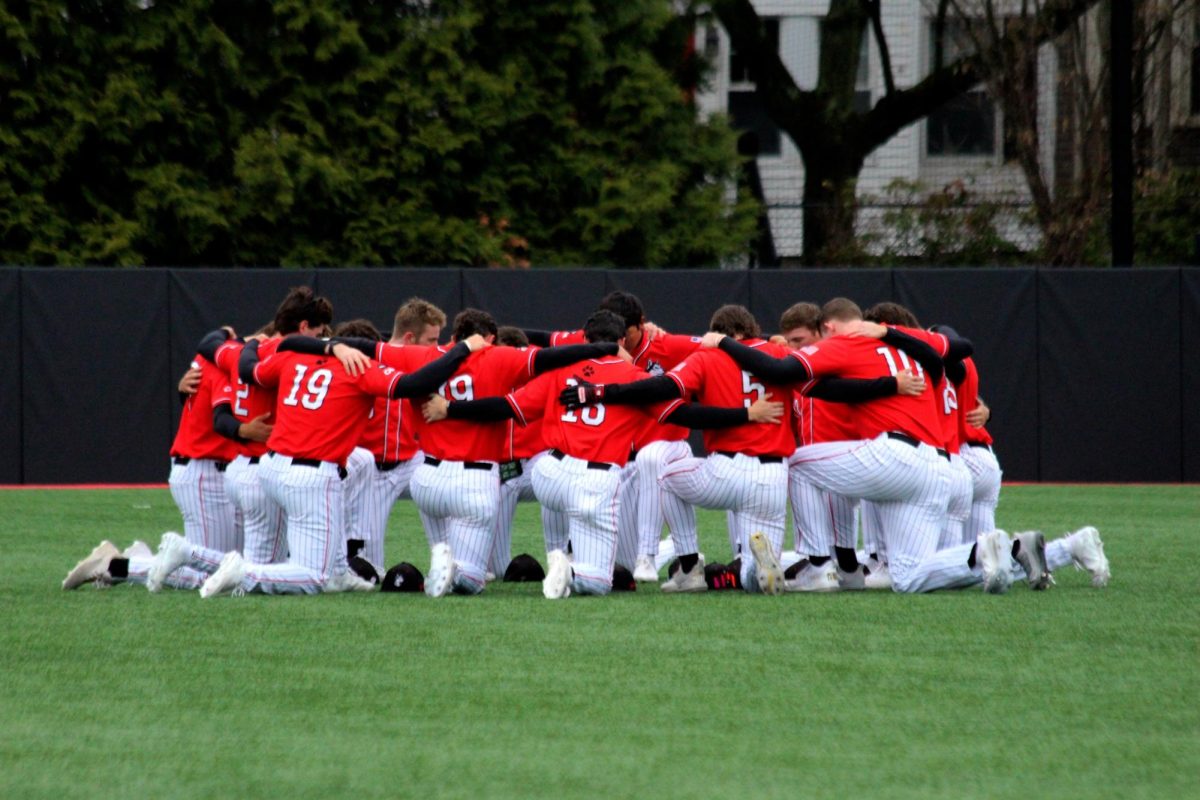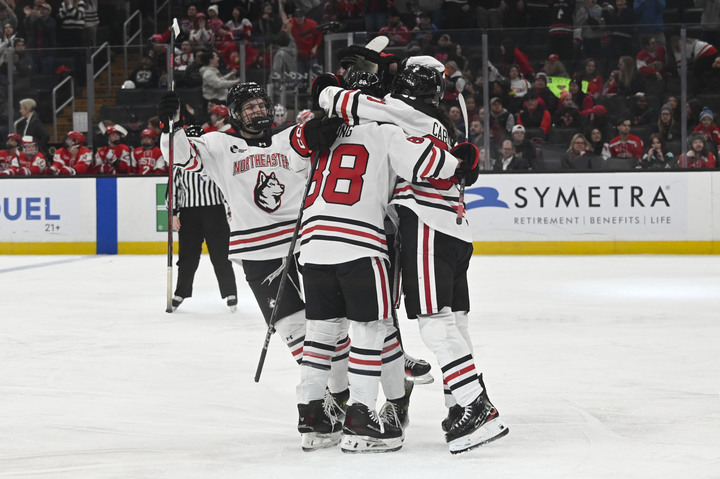Activists take stock a year after Parkland shooting
On March 24, 2018, hundreds of thousands of people gathered in Washington D.C. in support of stricter gun control laws. Rallies were also held in other large cities across the nation, including Boston.
February 12, 2019
At the forefront of the grassroots movement for stronger gun control started in 2018 were students like Leslie Chiu, a Floridian who graduated from NU last December with a degree in accounting and marketing. She doesn’t forget her impromptu start in activism around this time last year, which resulted in her becoming a co-organizer of the March For Our Lives Boston.
“I didn’t go into it thinking I was going to be said activist. It just happened, organically,” Chiu said. “I have a personal connection to what happened in Parkland and I wanted to be involved and do my part. It just kind of turned out that I became one of the co-organizers. What happened more than hits home, it was home — is home, so I just felt like I did what I had to do to protect that.”
Chiu was one of many Northeastern students motivated by the Parkland shooting and the subsequent March For Our Lives movement, either as activists or politically active citizens, but all as voters.
The victories achieved by the movement are worth celebrating to these students, but they acknowledge the momentum garnered by the gun control movement has yet to create significant legislative impact on gun violence in the United States.
Catherine Wenger is a second-year pre-med student at Northeastern majoring in international affairs. Originally from Pennsylvania, her political involvement stems from issues she is passionate about, including health care and gun control. She said she believes change on the national level will be slow, no matter what activists do.
“I think it’s going to take a long time for things to really start moving, but I think that it’s definitely headed in the right direction,” Wenger said. “There’s still the whole polarity of politics right now that is slowing everything down, but it will eventually make an impact.”
Wenger wasn’t directly involved with the March For Our Lives events, but supported the message and cast her vote with the issue of gun violence in mind during the midterm elections.
This is demonstrative of one of the biggest changes the students observe as a result of the movement, evident in the 2018 midterm elections — the rise in politically active youth.
According to the Center for Information and Research on Civic Learning and Engagement, or CIRCLE, political engagement among the youth demographic ages 18-29 was among the highest in a midterm election in decades. In 2018, it is estimated that 31 percent of youth voted, up 10 percentage points since the 2014 election. Furthermore, a CIRCLE pre-election survey of youth revealed “the percentage of youth who have participated in a protest [tripled] in just the last two years.”
But with political engagement must come education, Chiu said. This is something that she said the March For Our Lives movement tried to tackle as well — a lack of awareness.
“I don’t believe change can happen if you stay ignorant,” Chiu said. “I think young people all over need to try and educate themselves, in a literal sense and figuratively.”
Beca Muñoz, a third-year politics, philosophy and economics major, is remembered by many for her joint speech at the March 24, 2018 March For Our Lives Boston with her younger sister, Leonor Muñoz, a senior from Stoneman Douglas High School who survived the shooting. A Parkland native like Chiu, Muñoz agreed that political awareness is key.

Protesters in Washington D.C. participate in the March for Our Lives, a student-led demonstration.
“Young people, historically, have been the greatest pushes for change and progress,” Muñoz said. “Young people should be informed when they’re at the forefront of our politics, especially when our House of Representatives is not representative of our country, which should be very alarming to everyone.”
Muñoz added that increased voter turnout can be traced back to the movement, as can recent Democratic successes.
“We had a lot of amazing women of color and progressive candidates in a lot of swing states [in 2018]. People showed up,” Muñoz said. “A lot of progress has been made because people sense the urgency in this political climate and the need for young people to take their seats in politics at the local, state and federal level.”
In fact, the number of women elected into the House of Representatives was record-breaking, according to an NPR report, and overwhelmingly Democratic. Of 98 women elected to the House, 85 were Democrats.
Furthermore, Congress now includes a record number of women of color, not to mention the first Muslim women and the youngest woman ever elected.
Wenger added a lot of progress has also been made through gun control advocacy, which the movement has promoted.
According to The Pew Charitable Trust Stateline Legislative Review of 2018, 50 new gun-restrictive laws have been enacted in 25 states all over America, including in 14 states with Republican governors.
But according to experts like James Alan Fox, this impact has not extended to the major legislative change that would have a significant impact on gun violence.
As a professor of criminology, law and public policy at Northeastern, Fox is known for his research on mass murder, school shootings and gun violence. He isn’t as idealistic as the Northeastern students.
“We are seeing very little change and the change that we are seeing is not fundamental,” Fox said. “For example, banning bump stocks. They’ve been used in one mass killing, but that’s it. The changes that we’re seeing are at the margins.”
Chiu isn’t disillusioned by the lack of legislative change at the federal level.
As she leaves Northeastern behind, Chiu said that reminiscing on her activism, the movement’s success and the work left to accomplish is invigorating.
“I think, just in general, it has really empowered our youth to show them that they do have a voice and they can make change,” she said. “I think that’s the most beautiful thing that we’ve created.”







